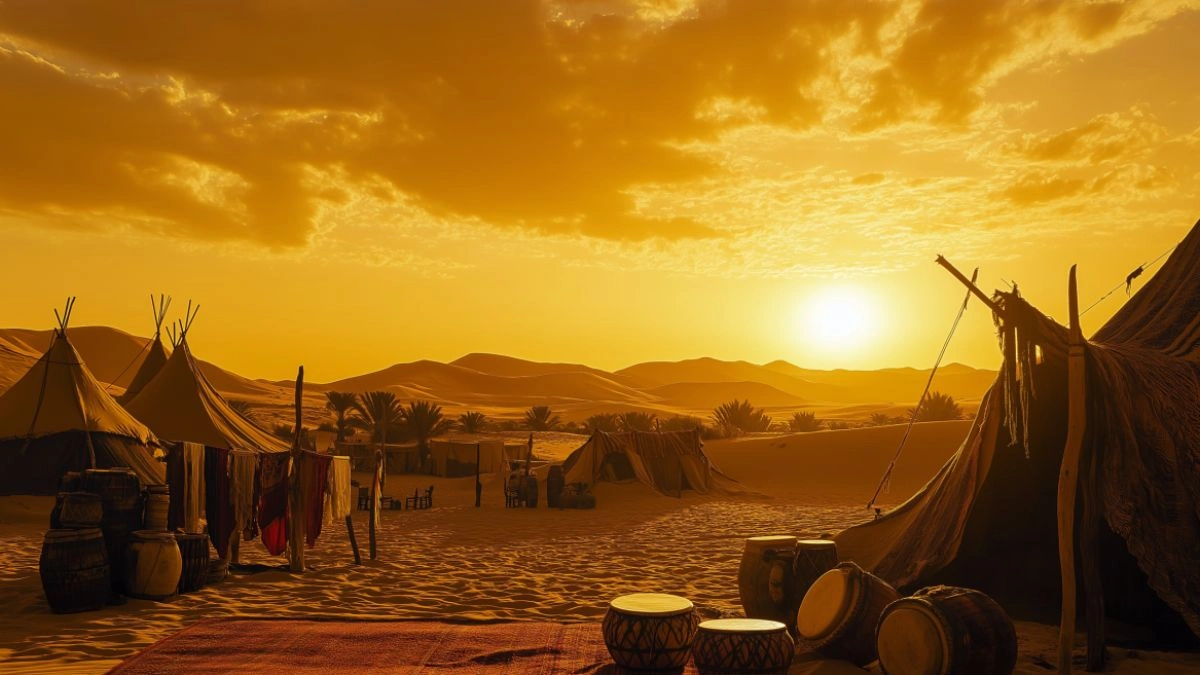Desert Sunset Cultural Experiences: Traditions, Festivals, and Timeless Celebrations
Table of Contents
As the sun dips below the horizon, casting golden hues over endless dunes, deserts worldwide come alive with vibrant cultural expressions. These arid landscapes, often perceived as barren, transform into stages for age-old traditions and festivals that celebrate the resilience and richness of desert communities.
From the rhythmic beats of drums echoing in Algeria’s Sebiba festival to the mesmerizing light installations of Australia’s Parrtjima, desert regions offer a tapestry of cultural experiences that are both deeply rooted and dynamically evolving. These events not only preserve ancestral customs but also invite global audiences to partake in celebrations that bridge the past and present.
In this exploration, we’ll journey through some of the most enchanting desert festivals and traditions, each illuminated by the setting sun and the enduring spirit of its people.
The Sebiba Festival: A Dance of Unity in Algeria’s Sahara
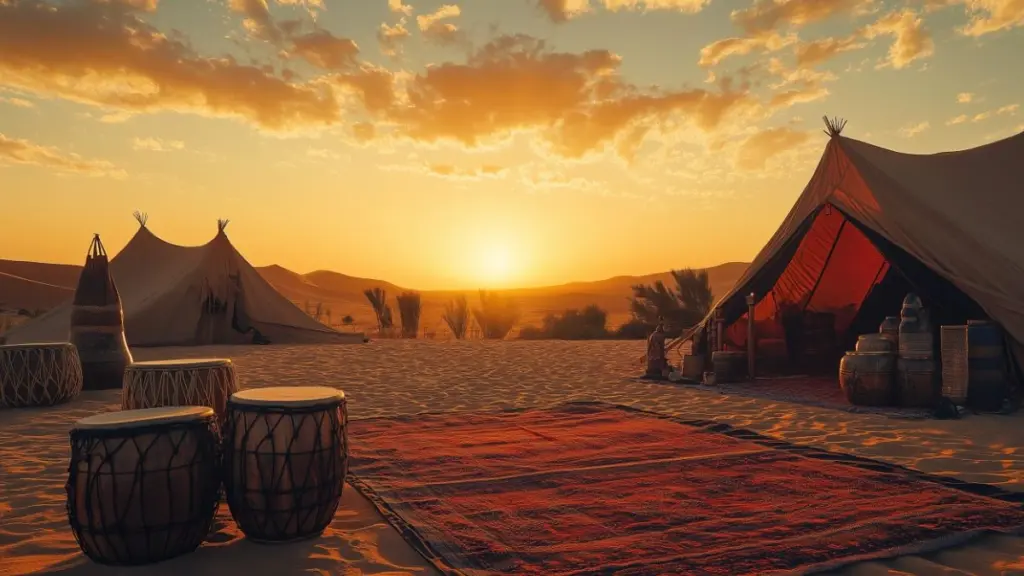
In the oasis town of Djanet, Algeria, the Sebiba festival unfolds annually, bringing together Tuareg communities in a vibrant display of dance, music, and cultural pride. Recognized by UNESCO for its intangible cultural heritage, Sebiba is more than a festival; it’s a symbol of unity and reconciliation.
During this ten-day celebration, participants don elaborate costumes and engage in synchronized dances accompanied by rhythmic drumming. The festival’s origins trace back to ancient times, serving as a means to resolve conflicts and strengthen communal bonds.
Sebiba Festival Highlights:
| Aspect | Description |
|---|---|
| Duration | 10 days |
| Key Activities | Traditional dances, drumming, costume displays |
| Cultural Significance | Symbolizes unity and conflict resolution |
| Recognition | UNESCO Intangible Cultural Heritage |
Parrtjima: Illuminating Aboriginal Culture in Australia’s Red Centre
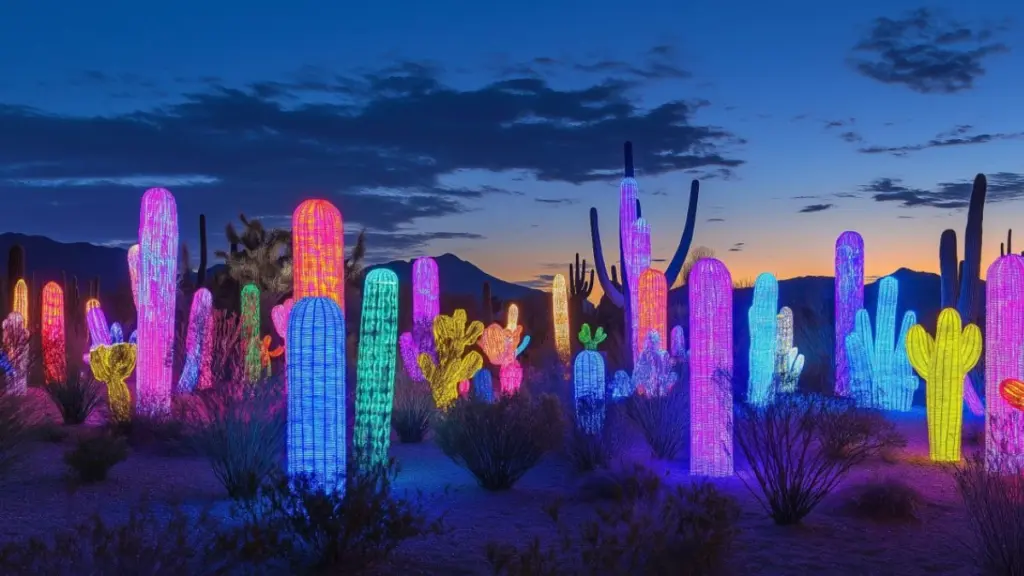
Held annually in Alice Springs, Parrtjima is a ten-night festival that celebrates Aboriginal art, culture, and storytelling through mesmerizing light installations. Set against the backdrop of the MacDonnell Ranges, the festival transforms the desert landscape into a canvas of color and creativity.
Visitors can experience large-scale projections of Indigenous artworks, interactive installations, and performances that delve into themes of connection, identity, and resilience. Parrtjima not only showcases the richness of Aboriginal culture but also fosters dialogue and understanding among diverse audiences.
Parrtjima Festival Features:
| Feature | Description |
|---|---|
| Duration | 10 nights |
| Key Attractions | Light installations, Indigenous art, performances |
| Themes | Connection, identity, cultural resilience |
| Location | Alice Springs, Northern Territory, Australia |
Festival of the Sahara: Tunisia’s Celebration of Nomadic Heritage
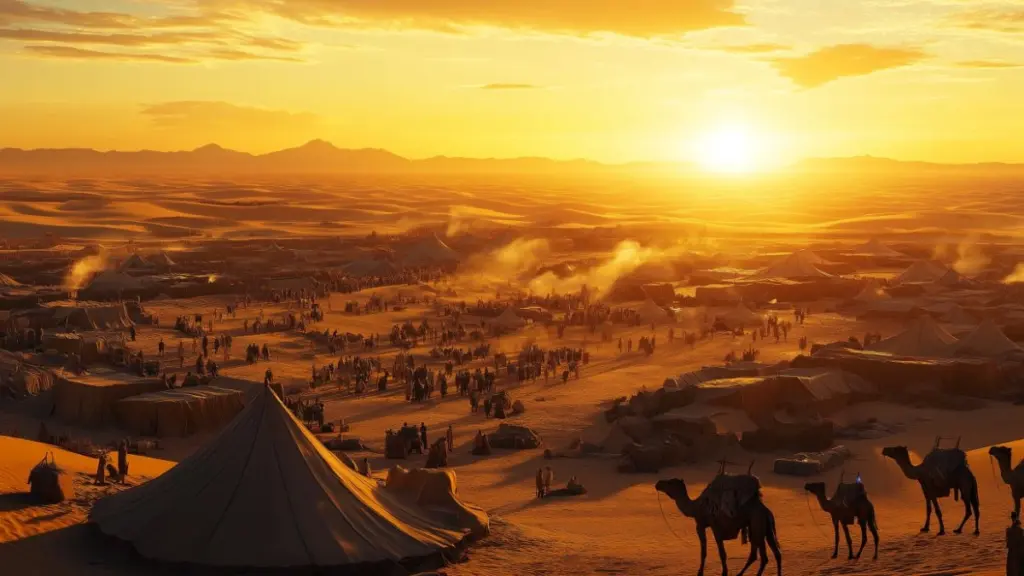
In Douz, Tunisia, the Festival of the Sahara stands as a testament to the enduring traditions of the desert’s nomadic peoples. This annual event, dating back to 1910, brings together communities to celebrate their heritage through music, dance, and traditional sports.
Attendees can witness camel races, poetry recitals, and folk performances that highlight the rich tapestry of Saharan culture. The festival serves as a vibrant gathering that honors the past while embracing the present.
Festival of the Sahara Overview:
| Element | Description |
|---|---|
| Established | 1910 |
| Main Activities | Camel races, poetry, folk dances |
| Cultural Focus | Nomadic traditions and heritage |
| Location | Douz, Tunisia |
Tan-Tan Moussem: Morocco’s Grand Nomadic Gathering
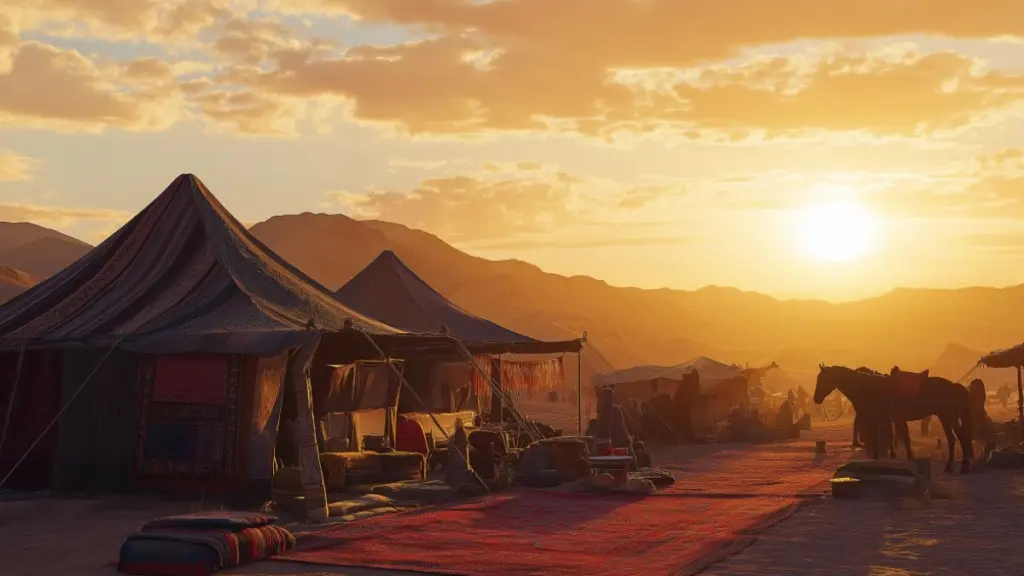
In the town of Tan-Tan, Morocco, the annual Tan-Tan Moussem brings together over thirty nomadic tribes from across Northwest Africa. Recognized by UNESCO, this gathering serves as a cultural exchange where traditions are celebrated and preserved.
The festival features horse and camel races, traditional music and dance performances, and artisanal exhibitions. It’s a vibrant showcase of the region’s diverse cultural expressions and a testament to the enduring spirit of its nomadic communities.
Tan-Tan Moussem Highlights:
| Feature | Description |
|---|---|
| Participants | Over 30 nomadic tribes |
| Key Events | Races, music, dance, artisanal displays |
| Cultural Importance | Preservation and celebration of nomadic heritage |
| Recognition | UNESCO Intangible Cultural Heritage |
Jaisalmer Desert Festival: Rajasthan’s Cultural Extravaganza
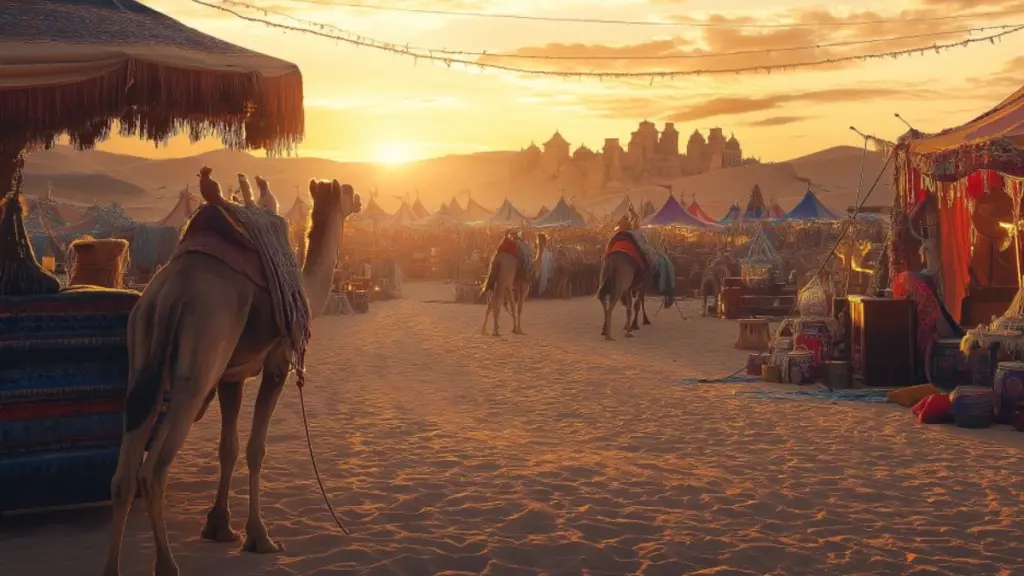
Every February, the golden city of Jaisalmer in India hosts the Desert Festival, a three-day celebration of Rajasthan’s rich cultural heritage. Set against the backdrop of the Thar Desert, the festival features folk music, dance, camel races, and traditional competitions.
Visitors can immerse themselves in the vibrant colors, sounds, and flavors of Rajasthan, experiencing firsthand the region’s artistic and cultural diversity. The festival not only entertains but also educates attendees about the traditions that have shaped the desert’s communities.
Jaisalmer Desert Festival Details:
| Aspect | Description |
|---|---|
| Duration | 3 days |
| Key Attractions | Folk performances, camel races, cultural contests |
| Cultural Significance | Showcase of Rajasthan’s heritage |
| Location | Jaisalmer, Rajasthan, India |
Agafay Desert Festival: Morocco’s Fusion of Tradition and Modernity
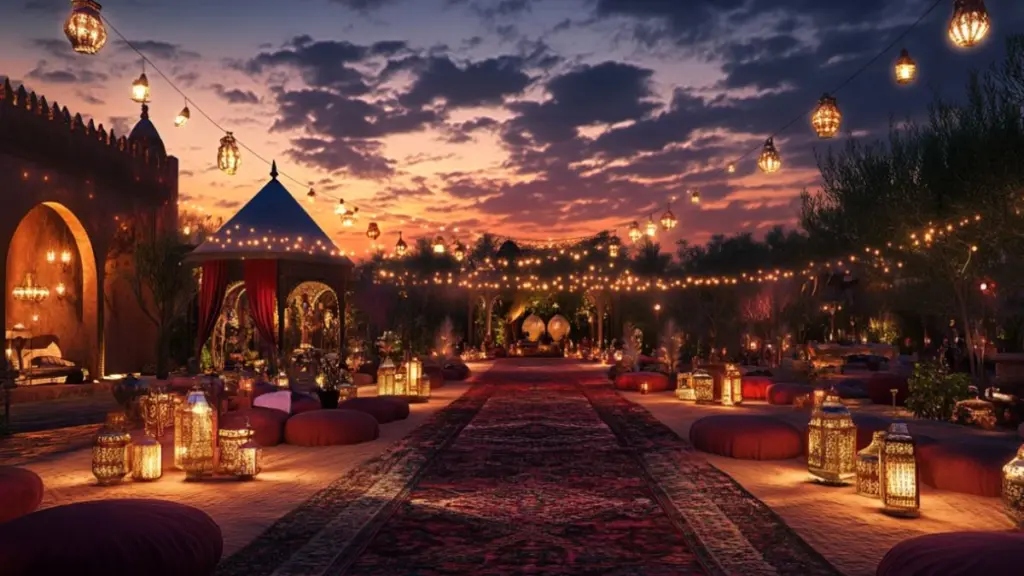
Near Marrakech, the Agafay Desert Festival offers a unique blend of traditional Moroccan culture and contemporary artistic expressions. Set in the rocky Agafay Desert, the festival features music performances, art installations, and workshops that celebrate Morocco’s rich heritage while embracing modern creativity.
Attendees can participate in activities ranging from traditional music sessions to contemporary art exhibits, all set against the stunning desert landscape. The festival serves as a bridge between the past and present, highlighting the dynamic nature of Moroccan culture.
Agafay Desert Festival Overview:
| Feature | Description |
|---|---|
| Location | Agafay Desert, near Marrakech |
| Key Events | Music, art installations, cultural workshops |
| Cultural Blend | Traditional Moroccan and contemporary arts |
| Setting | Rocky desert landscape |
Conclusion
Deserts, often perceived as barren expanses, are in fact vibrant landscapes teeming with cultural richness and traditions that have endured for centuries. As the sun sets over these arid regions, communities come together to celebrate their heritage through festivals that blend music, dance, art, and storytelling.
These desert sunset cultural experiences offer profound insights into the resilience, creativity, and unity of the people who call these landscapes home. By participating in or learning about these traditions, we not only honor the past but also contribute to the preservation and appreciation of diverse cultural legacies.

